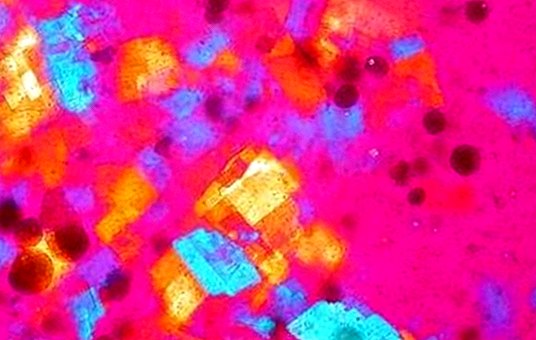The health effects of eating refined sugars every day
Did you know that between 2003 and 2013 the consumption of refined sugars per day and per person increased by 10%, reaching 63 grams? These are data provided by the World Health Organization (WHO), according to data obtained by the International Sugar Organization (OIA). A higher consumption of refined sugars that has also been accompanied by an increase in cases of overweight and obesity, and with them the obvious health risks they pose.
Due to this alarming growth, the World Health Organization recommended some months ago reduce sugar consumption to less than 10% of the calories we consume daily, so that adults should not exceed 12 tablespoons (of coffee) per day, and children up to 9 tablespoons of sugar.

Moreover, the scientific evidence collected by the WHO shows that people who consume less than 10% of their daily calories in the form of "free sugars" tend to be more likely to have an adequate or normal weight according to their height, complexion and age. Which in turn would reduce the risk of suffering from associated diseases, as for example is the case of cardiovascular diseases, heart disease and diabetes.
What are refined sugars?
While natural sugar is the one we naturally find in certain foods, which are rich in sugar and also contain water, fiber and vitamins that help regulate both the absorption and metabolism of it, refined sugar is pure sugar extract, containing only sucrose or sucrose.
This means that this type of sugars are not accompanied by nutrients such as vitamins, minerals or fiber naturally present in sugar cane or beet.
That is to say, refined sugar is effectively extracted from vegetable sources, but it does not have vitamins, minerals, enzymes, proteins, fiber, or microelements that make it a beneficial product for our health.
As many nutritionists and specialized doctors say, in reality sugar is not the problem of the current epidemic of overweight and obesity in which the majority of the world's population lives, but the very large amount of sugar consumed each day, which also It is usually accompanied by unhealthy fats.
What are the harmful effects of consuming refined sugars?
So that our organism can digest the refined sugars our own body must provide the necessary nutrients for its absorption. If we take into account that this type of sugar does not contain (and therefore does not), we find that refined sugar is a true nutrient thief.

Or, said more nutritionally speaking, we are only ingesting empty calories. That is, it is a product that does not provide any nutrients. But to understand it better we must find out a little more about how our organism digests refined sugar ...
We overload our body during its absorption and digestion
The refined sugars, as for example is the case of refined white sugar, are a combination of glucose and fructose (two simple sugars). In our intestines we find an enzyme known as sucrase, capable of rapidly breaking down sucrose into fructose and glucose. At this time, the glucose is absorbed by our bloodstream, while the excess of it is stored in the liver. For every 100 milliliters of blood it is estimated that there is a process of 100 milligrams of glucose, which translates to 1 gram of sugar per liter.
When the concentration of blood sugar increases above this level, our pancreas begins to release insulin, a chemical with which it neutralizes glucose and lowers the level of glucose in the blood. However, when the concentration is low it is the liver that releases the stored glucose, in the form of a substance known as glycogen.
As expected, the problem is not that we consume sugar, but that currently most processed foods contain an excessive amount of simple or refined sugars. Let's take an example: take a simple cup of coffee with a lot of sugar, and also accompany it with a few cookies or a donut. The result? We have just caused our organism what we could translate as a hyperglycemia, causing our pancreas to work almost desperately to produce insulin.

Causes demineralization of the body
Unlike natural sugar that does provide essential nutrients, in the case of refined sugar we find that it does not contain fiber, minerals or vitamins. That is to say, it only gives us empty calories. Moreover, when it enters our body, it is actually separated from the nutritive components that we find in the plant from which it is obtained in a completely natural way.
As a result, it tends to balance attracting mainly minerals (such as iron, phosphorus, calcium and magnesium) and B vitamins in order to absorb it, so that it can cause demineralization and vitamin deficiency.
Predisposes to obesity and diabetes
It is a product that has an almost direct influence on weight gain and also on the appearance of diabetes, since refined sugar tends to enter our bloodstream quickly, causing fatigue in the liver and a certain "stress" in the pancreas, since it must secrete a very large amount of insulin.
The result is evident, as well as dangerous: while in the short term it tends to prevent our organism from being able to correctly assimilate food, in the long term it ultimately influences the appearance of diabetes.
With obesity, the same thing happens: by producing rapid insulin peaks, glucose ends up becoming fat reserves, leading to an evident increase in weight.
Other negative effects on our health
In addition to the negative effects on our health indicated above, there are also others that we should mention:
- Acidifies the blood.
- It weakens our immune system.
- Create dependency.
- Increase in dental caries.
And what is the key to consuming less sugar? Always read the labels that contain the ingredients of each product, be more aware of this problem and try to reduce their consumption directly, opting preferably for slowly assimilated carbohydrates. This article is published for informational purposes only. You can not and should not replace the consultation with a Nutritionist. We advise you to consult your trusted Nutritionist. ThemesSugar


